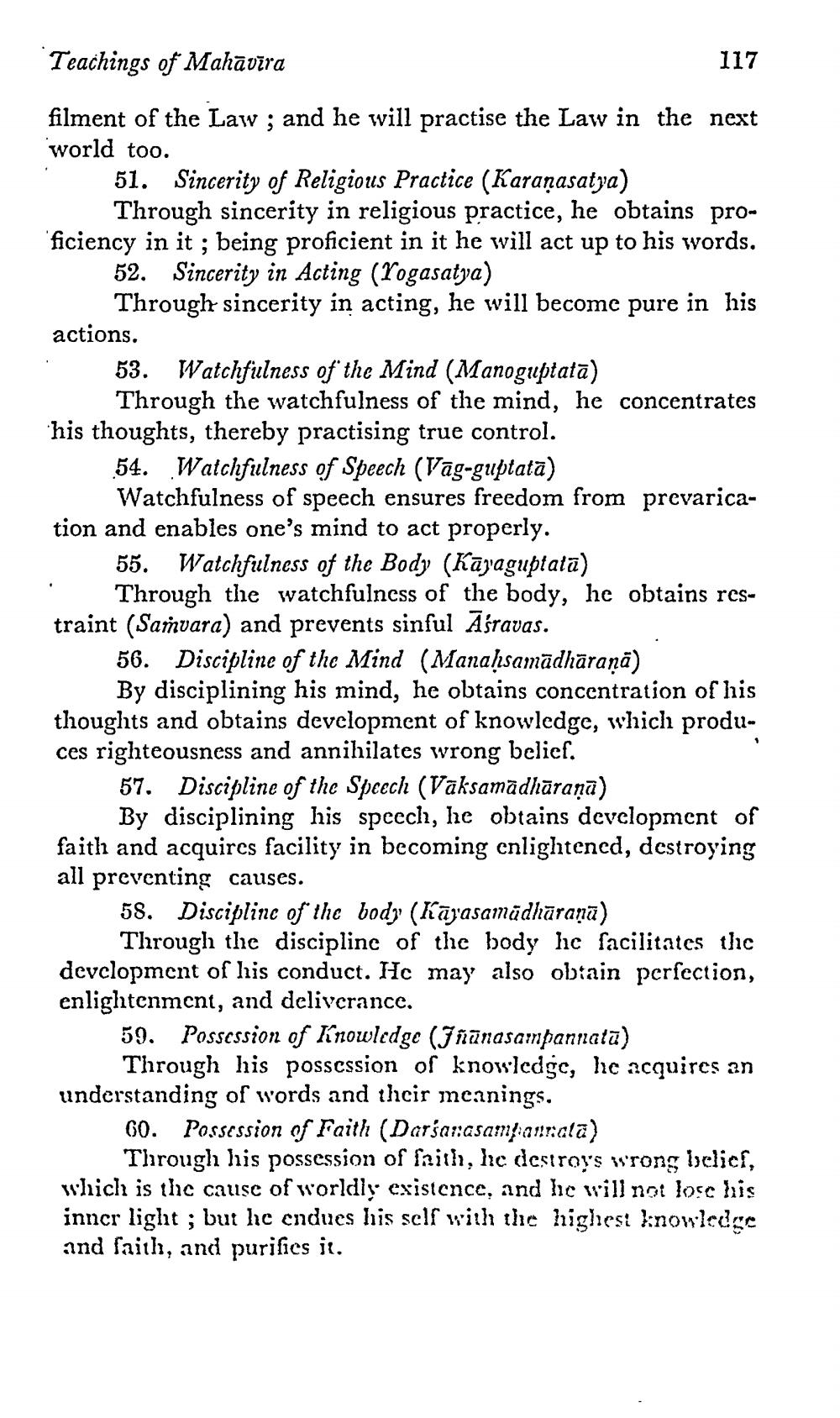________________
Teachings of Mahāvīra
117
filment of the Law; and he will practise the Law in the next world too.
51. Sincerity of Religious Practice (Karanasatya)
Through sincerity in religious practice, he obtains pro'ficiency in it; being proficient in it he will act up to his words.
52. Sincerity in Acting (Yogasatya)
Through sincerity in acting, he will become pure in his actions.
53. Watchfulness of the Mind (Manoguptatā)
Through the watchfulness of the mind, he concentrates his thoughts, thereby practising true control.
54. Watchfulness of Speech (Vag-guptatā)
Watchfulness of speech ensures freedom from prevarication and enables one's mind to act properly.
55. Watchfulness of the Body (Kāyaguplatā)
Through the watchfulness of the body, he obtains restraint (Samvara) and prevents sinful Aśravas.
56. Discipline of the Mind (Manaḥsamādhārana)
By disciplining his mind, he obtains concentration of his thoughts and obtains development of knowledge, which produces righteousness and annihilates wrong belief.
57. Discipline of the Speech (Vaksamadhāraņā)
By disciplining his speech, he obtains development of faith and acquires facility in becoming cnlightened, destroying all preventing causes.
58. Discipline of the body (Kājasamadhāraṇā)
Through the discipline of the body he facilitates thic development of his conduct. Hc may also obtain perfection, enlightenment, and deliverance.
59. Possession of Knowledge (Jņānasampannata)
Through his possession of knowledge, he acquires an understanding of words and their mcanings.
60. Possession of Faith (Darśarasambaurata)
Through his possession of it, hic destroys wrong belics, which is the cause of worldly existence, and he will not loschis inner light ; but hc endues his self with the highest knowledge and faith, and purifies il.




